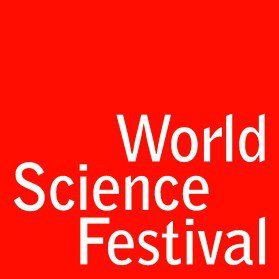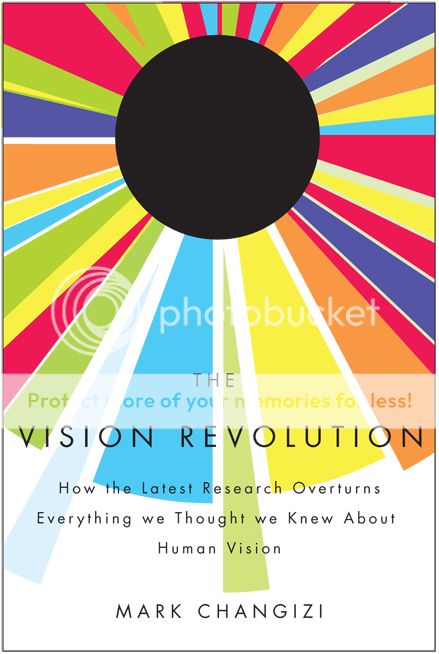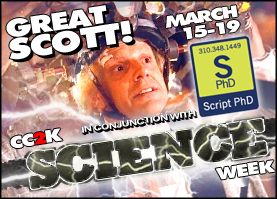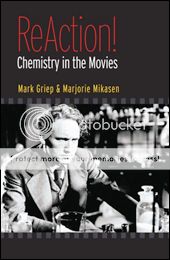Guest Article: Beauty and the Building Blocks…
Jun0

The building blocks of life. Photograph courtesy of Dr. Ron Zuckermann
…a nanoscientist’s quest to mimic Nature’s molecular blueprints
Have you ever found yourself entranced by the exquisite beauty and complexity of living things? Like the intricacies of a budding flower, or the mesmerizing patterns on a butterfly’s wing? Have you ever wondered: “what are living things made of?” Are these materials just as beautiful if we were to zoom way way in and look at the actual molecular building blocks that make up life? Take a look at the interactive link The Scale of Things to see just how small the building blocks of life really are! Well the answer is “OMG – totally!” All living things share a ubiquitous set of molecular building materials we call proteins, and they are absolutely stunning! They are not only smashingly beautiful to look at, they are capable of performing a mind-numbing myriad of very intricate and complex functions that are essential to life. In a very special guest post, leading nanoscience Professor Ron Zuckermann of the renowned Lawrence Berkeley National Laboratory recounts his life’s mission as a chemist to try and build artificial microscale sheets made up of nature’s very own building blocks—proteins. Everything you wanted to know about what nanotechnology is, exactly, why engineering proteins is the science of the future, and what we plan to use these discoveries for, under the “continue reading” cut.
World Science Festival: Opening Gala + Day 2
Jun0

The 2010 World Science Festival Runs in New York City from June 2-6.
Begun in 2008 by Columbia University Physicist Brian Greene, the World Science Festival has burgeoned from an intimate cluster of science panels to a truly integrated mega-event melding culture, science, and the arts. Those lucky enough to make it out to New York City to the over 40 events this year will have a chance to learn about a variety of current science topics, go stargazing with NASA Scientists, discuss Faith and Science, and find out why humans commit violent crimes. Those not lucky enough to be there can browse the full list of events here and watch a live-stream of selected events here. ScriptPhD.com is proud to be at the festival, and will be bringing you coverage through Sunday through the eyes of talented science writers Jessica Stuart and Emily Elert. Our blogging will include event summaries, photographs, interviews and even videos of the street fairs and science literally spilling over into the streets of New York.
Guest Article: The Idea-Monger: No Genius Required by Mark Changizi (Podcast)
May4

The Vision Revolution by Mark Changizi. ©2010 BenBella Books, all rights reserved
Dr. Mark Changizi, a cognitive science researcher, and professor at Rensselaer Polytechnic Institute, is one of the most exciting rising stars of science writing and the neurobiology of popular culture phenomena. His latest book, The Vision Revolution, expounds on the evolution and nuances of the human eye—a meticulously designed, highly precise technological marvel that allows us to have superhuman powers. You heard me right; superhuman! X-ray vision, color telepathy, spirit reading, and even seeing into the future. Dr. Changizi spoke about these ideas, and how they might be applied to everything from sports stars with great hand-eye coordination to modern reading and typeface design with us in ScriptPhD.com’s inaugural audio podcast. He also provides an exclusive teaser for his next book with a guest post on the surprising mindset that makes for creative people. Read Dr. Changizi’s guest post and listen to the podcast under the “continue reading” cut.
Earth Day Guest Article: Plastic Beads and Sugar Water
Apr1

Happy Earth Day, 2010!
Here at ScriptPhD.com, we pride ourselves on being different, and we like thinking outside the mold. So for Earth Day 2010, we wanted to give you an article and a perspective that you wouldn’t get anywhere else. There is no doubt that we were all bombarded today with messages to be greener, to use less, to be more eco-conscious, and to respect our Earth. But what is the underlying effect of advertising that collectively promotes The Green Brand? And has the Green Brand started to overshadow the very evil—environmental devastation—it was meant to fight to begin with? What impact does this have on the future of the Green movement and the advertising agencies and media that are its vocal advocates? These are questions we are interested in answering. So when we recently met Matthew Phillips, a Los Angeles-based writer, social media and branding expert, and the founder of a new urban microliving movement called Threshing, we were delighted to give him center stage for Earth Day to offer his insights. What results is an intelligent, esoteric and thoughtful article entitled “Plastic Beads and Sugar Water,” sure to make you re-evaluate everything you thought you knew about going green. We welcome you to contribute to (and continue) the lively conversation in the comments section.
Guest Article: A Pop-Culture Science Lesson
Mar0

All right class, settle down, settle down. My name is Mr. Ross, but you may call me BR. Welcome to Pop-Culture Science 101. I know what many of you are thinking: “Science is boring; I just don’t get it.” I can understand those sentiments. But that’s only because of the ways you’ve been taught in the past. Today is going to be different. On this, the third day of the Science Week collaboration between ScriptPhD and CC2K, we decided to have a bit of silly fun and cover a couple of traditionally esoteric science topics from an angle I doubt any of you have considered before—pop culture icons. So get out your notebooks and pens, today’s lesson begins now! Please click “continue reading” for more.
Guest Article: HBO’s ‘Temple Grandin’ Biopic Honors Autistic Scientist
Feb2

Temple Grandin film poster ©2010 Home Box Office, all rights reserved
This was a remarkable week for autism science and publicity. In a stunning and rare reversal, medical journal The Lancet retracted the 1998 paper responsible for suggesting a link between autism and MMR vaccinations, incurring over a decade of acrimonious debate and frightened parents. Ironic then that this should be the week when HBO premieres their new feature film Temple Grandin, about the eponymous world-famous scientist. Dr. Grandin has written and spoken openly about her struggle with autism and how it’s colored her view of the world and influenced the science she studies. ScriptPhD.com is extraordinarily honored to extend a warm welcome to friend and fellow blogger Susan Etlinger, author of the autism spectrum blog The Family Room, to review the biopic and interview the project’s executive producer. For full content, please click “continue reading.”
GUEST POST: On Chemistry, Movies and Making Science Entertaining
Jan2

Reaction! Chemistry in the Movies is an Oxford University Press title. ©2009, all rights reserved.
One of my favorite movies as a kid, and now, as a professional scientist, is Andromeda Strain. The heroes are mostly older, professorial types who work feverishly to understand an alien organism and save the planet. After being asked to review ReAction! Chemistry in the Movies for ScriptPhD.com, I was so curious to consume (with relish) the book’s guesswork about the chemistry found in Andromeda Strain. After returning to the beginning of the book and giving it a read, I was thrilled to find that ReAction! is a detailed, thoughtful exploration of the representation of chemistry in film. The book addresses, first and foremost, the fact that chemistry can play a lead role in film. The authors also discuss the dichotomy between the “dark” and “bright” sides of chemistry (and science) as illustrated by films in which chemistry or chemists play a central role. Also included are several playful explorations of the real science behind some famous examples of fictional chemistry in film. After the break is a full review of the book along with an in-depth interview with authors Mark Griep and Majorie Mikasen on the process of working together as chemist and artist, portrayal of chemists in film and how film can change public perception in science.

















